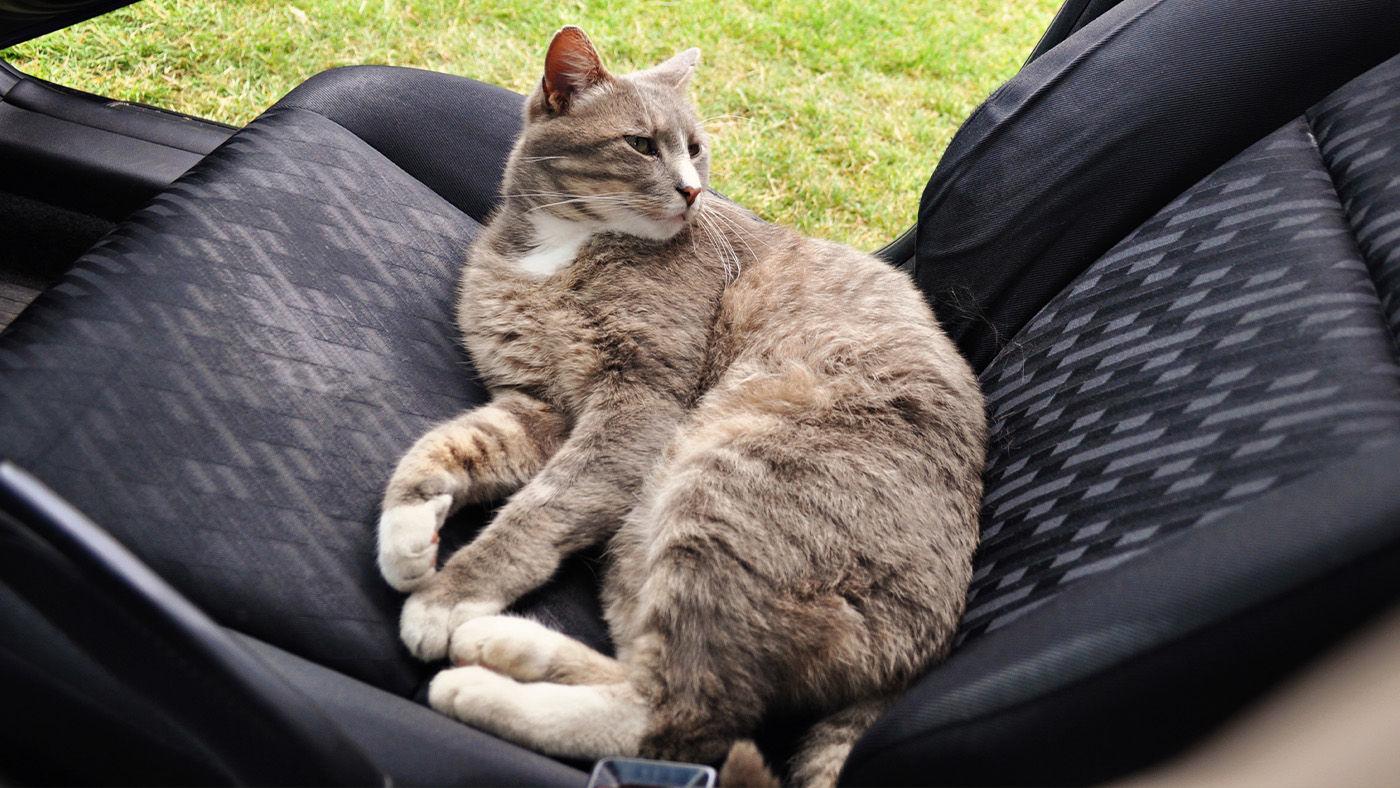Cat snoring: Why do cats snore and is it normal?
What does it mean if your cat snores? Read on to find out!
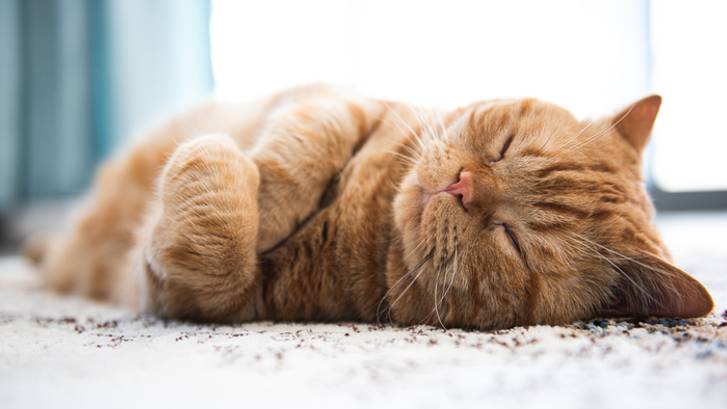
Have you ever been woken up by the sound of your cat’s snores? If so, you may be wondering if a cat snoring is normal or not.
Cats can snore for a number of different reasons, some common and others concerning. Of course, cats sleep a lot - an average of 15 hours to be exact - so you're more likely than not to hear a spot of gentle snoring but when does it become worrying?
To determine whether or not your cat’s snoring is normal, you’ll need to consider how long it has been going on, when it occurs, and whether there are any other symptoms that accompany the snoring.
As always, if your cat’s snoring is new or concerning to you, it’s best to consult your veterinarian to ensure your cat is healthy. To help you determine whether your cat’s snoring is cause for concern, we’ve outlined the basics of feline snoring below.
- Best cat bed: Cozy cribs for your kitty
- Why is my cat twitching in their sleep? Vet's guide to dreaming vs. seizures
- Best cat hammocks: Give your kitty the perfect perch
Should I worry that my cat snores?
If your cat only snores during sleep and has always done so, there probably isn’t any cause for concern. However, if the snoring is new or if it occurs while your cat is awake, it’s best to see your veterinarian to have the snoring evaluated.
Your veterinarian will perform a full head to tail physical examination, and may recommend some additional diagnostic testing such as imaging of the head using radiographs (x-rays) or CT scan, or advanced diagnostics such as rhinoscopy, in which a small camera is inserted into the nose to evaluate the nasal cavity.
Although there are many possible causes for snoring – such as an upper respiratory infection, polyp, or mass in the nasal cavity, among others – your veterinarian will be able to guide you on the appropriate treatment to help get your cat breathing better.
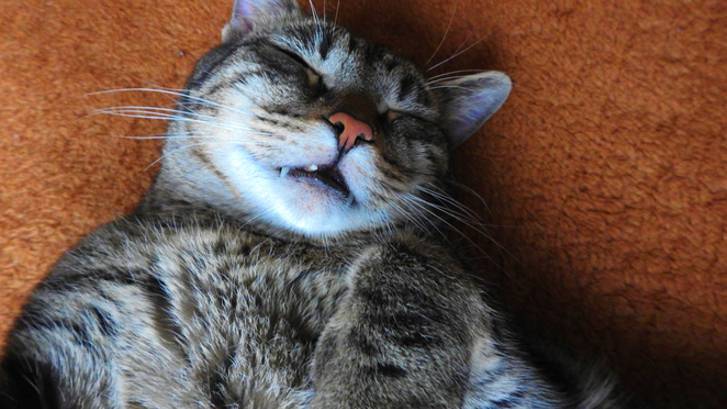
Why does my cat snore?
If you're concerned about your cat's snoring, consider the following explanations:
Normal sleep behavior
As you’ve probably noticed, your cat has a much different sleeping pattern compared to you or even other pets in your household. Cats are famous for their ability to sleep all day! In reality, cats sleep about 13 hours a day, broken into sessions of approximately 78 minutes at a time.
Like us humans, cats experience both REM sleep (rapid eye movement sleep) and non-REM sleep. During non-REM sleep, the cat is immobile and they eyes do not move. During REM sleep, the cat is generally still immobile but may have bursts of movement as they dream. This can include movement of the eyes, tail, limbs, and diaphragm. Snoring can occur during both the non-REM sleep and the REM sleep stages.
Obesity
Just like humans, cats may be more prone to snoring if they are obese. If your cat is overweight or obese, talk to your veterinarian about a weight loss plan for your cat.
Your veterinarian can recommend an appropriate diet and portion size to help your cat safely shed the extra pounds. Once your cat loses the weight and returns to a healthy lean body weight, the snoring may resolve.
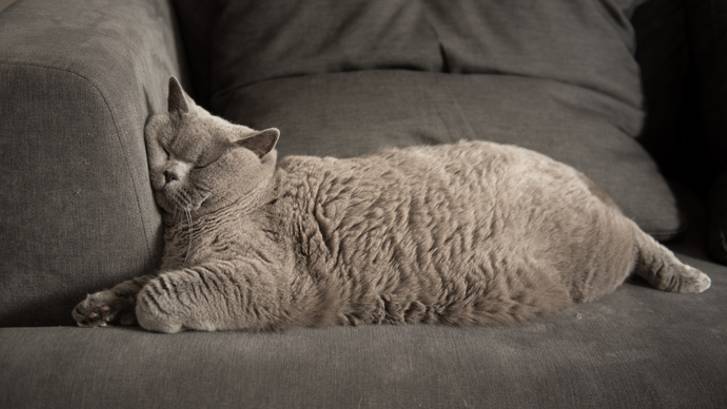
Upper respiratory congestion
If your cat is making snoring noises while he’s awake, this can be a sign of a problem. One potential cause of snoring noises is upper respiratory congestion. Just like us, cats can get respiratory infections that cause them to become congested or “stuffy”. The snoring noise is caused by inflammation and excess mucus in the nasal passages.
This is often accompanied by other symptoms such as sneezing, discharge from the eyes or nose, loss of appetite, and sometimes a fever. Upper respiratory infections are treatable with medications from your veterinarian, and the snoring should resolve once the infection has cleared.
Excess tissues
Another possible cause for snoring noises is a nasopharyngeal polyp. A nasopharyngeal polyp is a mass of tissue originating from either the middle ear, the Eustachian tube which connects the middle ear to the throat, or the back of the throat. Sometimes these polyps hang at the back of the throat or extend into the nasal cavity, causing an abnormal noise as the cat breathes.
Nasopharyngeal polyps must be removed by your veterinarian, which will resolve the snoring noise. More advanced surgery may be necessary to remove the base of the polyp and prevent it from recurring. Your veterinarian will determine the best course of treatment depending on the size, shape, and location of the polyp.
Breed type
Snoring while awake can be normal in some cat breeds, such as brachycephalic or compressed-face breeds like the Persian or the Himalayan. These breeds have been bred to have shorter noses, which has resulted in defects such as narrow nasal passages, an elongated soft palate, and a predisposition for upper airway obstruction.
These conformational changes all can cause increased upper respiratory noise which may sound like snoring. This is normal in these breeds and is not a cause for concern unless the resulting airflow changes are impacting your cat’s quality of life.
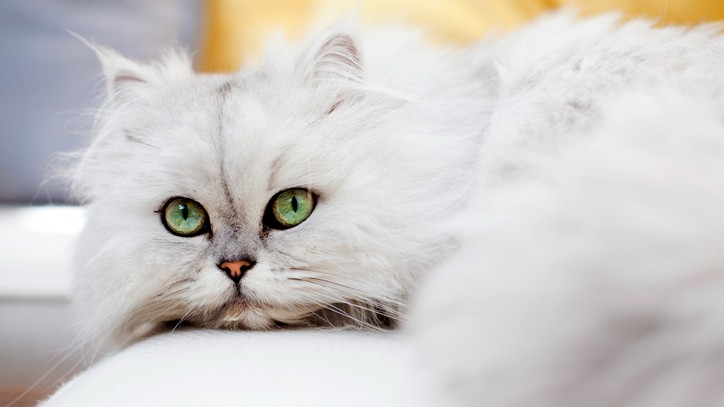
Tumors
Snoring noises can also be caused by a mass in the nasal cavity, such as a tumor. A tumor can not only disrupt airflow in the nasal cavity but can also cause inflammation and destroy surrounding structures, leading to turbulent airflow and noisy breathing.
Depending on the type of tumor, treatment may include chemotherapy or radiation therapy to help shrink the tumor and preserve airflow in your cat’s nasal cavity. Your veterinarian may recommend some advanced testing to evaluate the tumor, or may refer you to a veterinary oncologist for further diagnostics and treatment.
Conclusion
It is normal for a sleeping cat to snore periodically, just like sleeping humans and dogs. As long as the noise only occurs during sleep and does not bother your cat, snoring is generally no cause for concern.
However, should you have any doubts, be sure to consult with your veterinarian.
PetsRadar Newsletter
Get the best advice, tips and top tech for your beloved Pets
Dr. Elizabeth Racine is a small animal general practice vet covering all things pet health and wellness. Her special interests include veterinary behavior, nutrition, and internal medicine.
As a freelance writer, Dr. Racine has written content for major companies in the industry such as the American Kennel Club, Merck Animal Health, Bayer PetBasics, Elanco, and CareCredit. In her free time, Dr. Racine enjoys playing trampoline dodgeball, hiking with her beagle Dasher, and spending time with her three mischievous cats.

